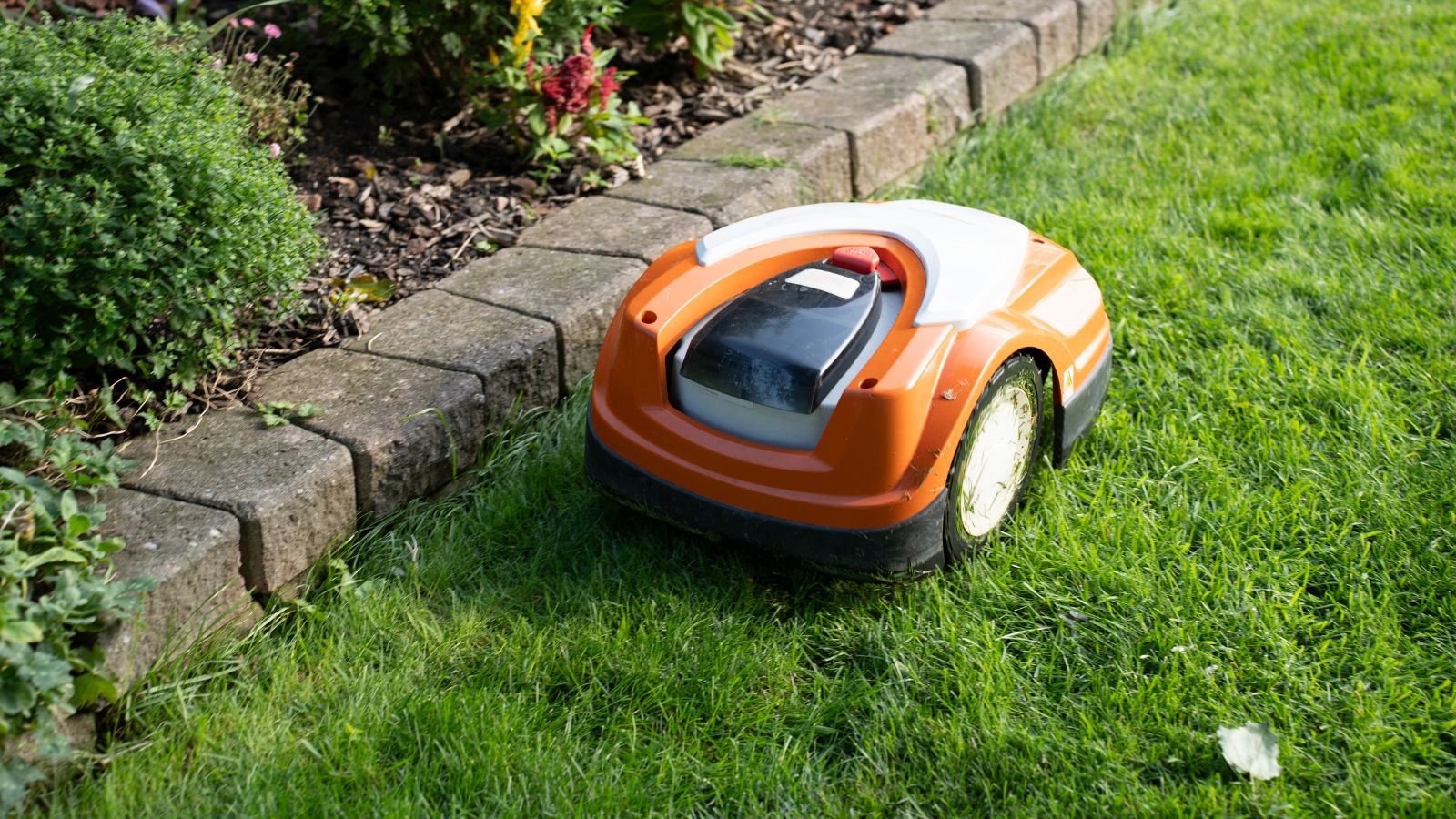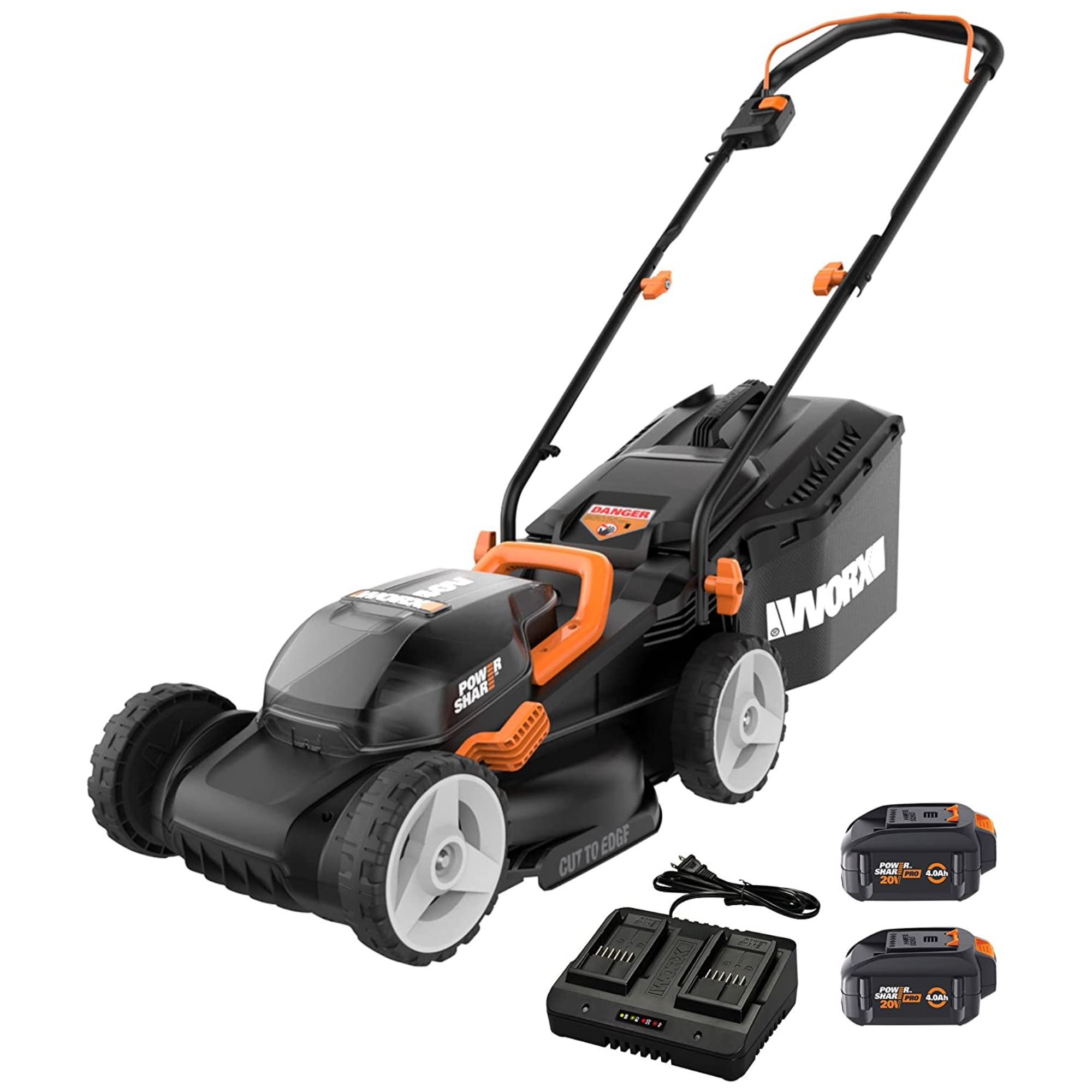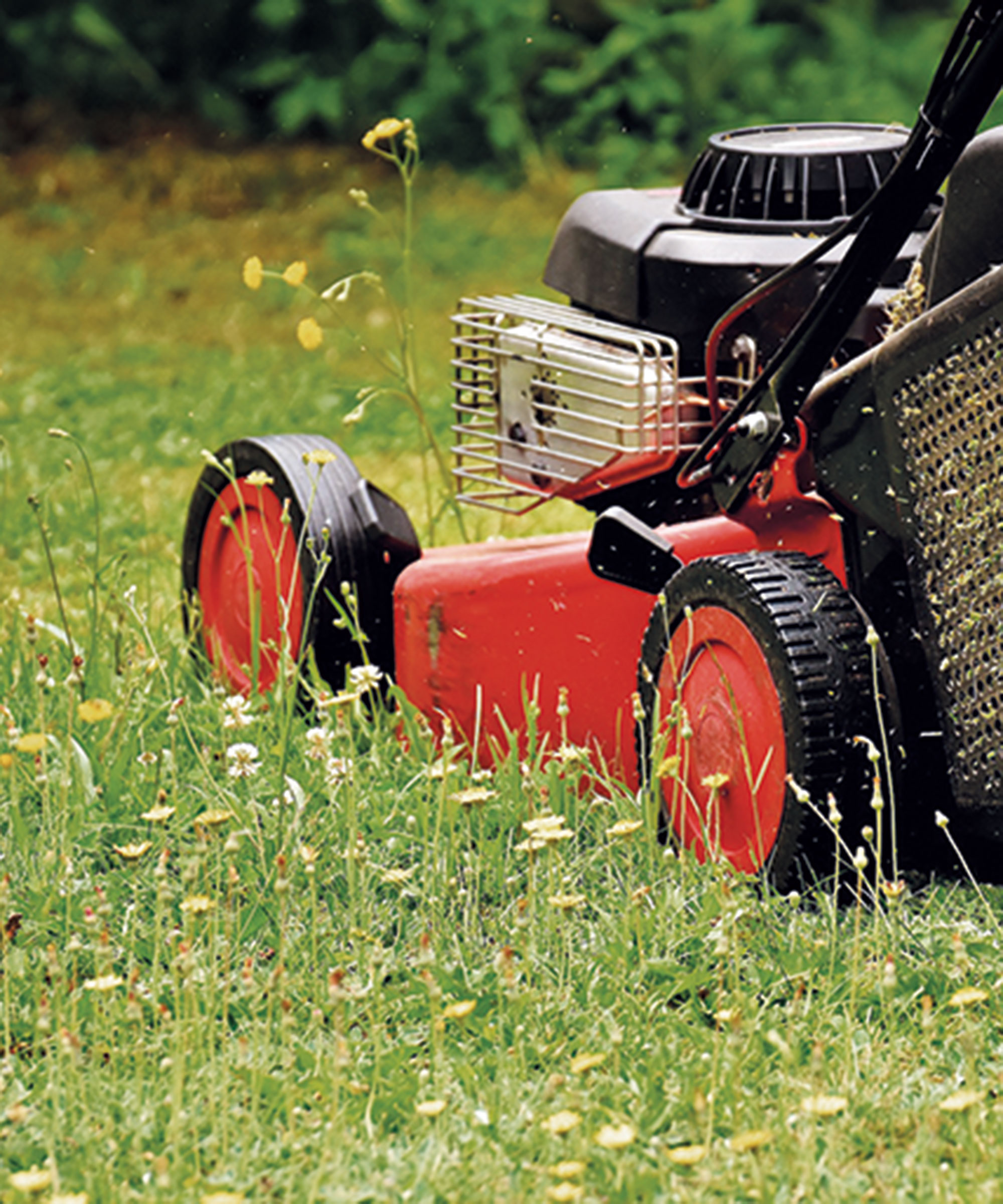Robot mower vs push mower – which is best?
Here's everything you need to know about choosing between a robot mower vs push mower


I've tested lawnmowers for years, and I love my job, but even I have days when I can't face mowing the lawn. We've all had times when we'd rather do anything else; the sun is beating down, the engine won't turn over, and you have hours of pushing a mower up and down the same old patch of yard stretching out before you.
You may have considered a robot mower if you can't face another afternoon's mowing. These sound like a no-brainer; a 'Jetsons-esque' solution to yardwork, tidying your lawn while you kick your feet up and relax. However, robot mowers can have a lot of drawbacks, so it pays to properly understand how they work, and compare them to other types of lawnmowers, before you buy.
I've tested the best lawnmowers for years, so I know firsthand the benefits and drawbacks of both types. I have also spoken to a collection of lawn experts who share their insights on which mower is best for your lawn.
Head to head
Before we get started, here's a quick head-to-head of my favorites, so you can see the differences between the two types.

Type: robot mower
Deck width: 8.7"
Coverage: 2/5 acre
Cutting height range: 0.8"-2"
RRP: $1999.99
This Husqvarna mower offers an excellent robot mower at a fair price. It's quiet and you can control it with smart speakers like Alexa. However, it can't tackle high grass, and the RRP is four times that of most push mowers.

Type: cordless push mower
Deck width: 14"
Coverage: 1/8 acre
Cutting height range: 1.5"-3.5"
RRP: $299.99
If you want something cheap and straightforward, I highly recommend this mower. I found that it cuts incredibly closely, it's lightweight and easy to maneuver, and it's surprisingly good value. It's much cheaper than the Husqvarna, but it covers a smaller area.
Robot mower: Pros

While lots of us love mowing, it can be boring if you don't have a green thumb. If you just want a tidy lawn, a robot mower means you never have to think about it again.
Mowing also gets harder as you age, and a robot mower can take on this task to free up your time for more technical gardening.
A robot mower can stop disputes before they start if you have crotchety neighbors or live in a HOA as they are much quieter than traditional mowers. It's hard to exaggerate how much quieter they are. They're usually no louder than an electric toothbrush, and you can easily hear birdsong with top-line robot mowers – so it's unlikely that you'll ruin anyone's Sunday afternoon sat in the garden as it tidies up your lawn.
Design expertise in your inbox – from inspiring decorating ideas and beautiful celebrity homes to practical gardening advice and shopping round-ups.
I spoke to lawn expert, Taylor Olberding, who adds that, 'robot lawn mowers are good for keeping the lawn cut consistently at the same height'.
Robot mowers are also more eco-friendly than gas mowers, but I'm always a little reticent about this claim. Mining the lithium in their batteries is destructive, and most robot mowers are assembled in China and then shipped halfway around the world, so they're hardly the greenest products. However, you can say the same things about gas mowers, which also add to the greenhouse effect through gas exhaust. In the end, a robot mower is still greener than a gas mower.
Robot mower: Cons
Robot vacuums are expensive. To be fair, they're no more expensive than a robot vacuum, and a relative bargain compared to riding mowers, but they're much more expensive than a push mower. Robot mowers are usually more than $1000, hundreds of dollars more than push mowers.
Robot mowers are also difficult to install. Unlike robot vacuums, which usually navigate by laser, lidar, or cameras, most robot mowers need a perimeter wire. The mower detects the wire and uses it as a guide to the limits of your lawn. This can take a while to install, and it can also be an eyesore. Perimeter wires become vulnerable to weather over time, so you're best off burying them, but that can quickly become very labor-intensive. Even small yards will need dozens of feet of wire. What's more, robot mowers are notoriously poor at mowing along an edge.
These types of mowers aren't always great at tackling hills or uneven terrain. Their small motors mean that most models can only take on gradients of up to 20°. If your lawn isn't level, the small deck on the robot might struggle to make an even cut. Lawn expert, Taylor Olberding, told me that they also, 'keep the mowing height short, which might not be ideal for your grass type'. If you have creeping red fescue or Kentucky bluegrass, a robot will cut it too short.
Most robot mowers don't collect grass clippings as they mow. While this is great for healthy grass, it can be a bit of a pain, leaving lots of old grass clippings on the lawn –if your kids are playing out on the lawn, they're almost guaranteed to tread old grass clippings back into the house when they're done.
Push mower: Pros

The most obvious benefit of a push mower over a robot mower is price. You can pick up a good push mower for more than half the price of a mediocre robot mower. If you don't mind putting in a little work, you'll save a lot of money.
Unlike robot mowers, push mowers collect the grass clippings, which gives you more options. You can throw them in the garbage, sure, but you're better off reusing them as mulch or as green matter in your compost or worm bin.
Push mowers also offer a lot more control than robot mowers. A push mower makes it easy to mow along the edge of your grass, or around obstacles like trees and garden furniture. If you have pets, this also means that you can avoid dog and cat mess.
An underrated benefit is that mowing is great exercise. It's not for everyone, but lots of people genuinely enjoy mowing as an activity, and it's a great way to get a few extra steps in while keeping your yard tidy.
Push mower: Cons
Push mowers are very loud, especially if you have a gas mower. Even if you use a cordless or electric mower, they are much louder than their robot equivalents. If you're at all conscientious about your neighbors, this will limit the hours in which you can mow.
Push mowers also need a lot of upkeep. Gas mowers need gasoline, engine oil, spark plugs, and replacement filters, and that's before you start getting into issues with sharpening the blades (we explore how to sharpen lawn mower blades in our dedicated feature), troubleshooting a tricky pull cord, or issues with hydrolocking. Even with cordless mowers, you need to remember to charge the batteries, and corded mowers run the risk that you'll run over the cord with the blades.
Push mowers also need effort and time. Depending on the size of your lawn, you're probably looking at about an hour's work, without including the time it takes to pack and unpack the mower. Even if you enjoy mowing, it can be a time-sink when you could be doing other yardwork or pursuing other hobbies.
Buy a robot mower if:
- You're busy
- You don't like mowing
- You have mobility issues
- You have a big budget
Buy push mower if:
- You like to mow
- You're on a budget
- You want more control
- You want to get more exercise
FAQs
Do you have to sharpen robot lawnmower blades?
Yes, like any mower, you need to sharpen the blades. You can also buy replacement blades when your blades wear down – Amazon have a great selection of robot lawn mower blades.
Can robot mowers go uphill?
Yes, robot lawnmowers can drive uphill, but they can handle a shallower angle than a push mower. Top-line mowers can handle inclines of up to 30°; most can tackle 20°.
For more mowing tips and helpful shopping advice, we explore riding mower vs push mower and why won't my lawnmower start in our separate pieces.

As a gardens and lifestyle contributor, Alex makes sure readers find the right information to help them make the best purchase. Alex got his start in reviewing at the iconic Good Housekeeping Institute, testing a wide range of household products and appliances. He then moved to BBC Gardeners’ World Magazine, assessing gardening tools, machinery, and wildlife products.